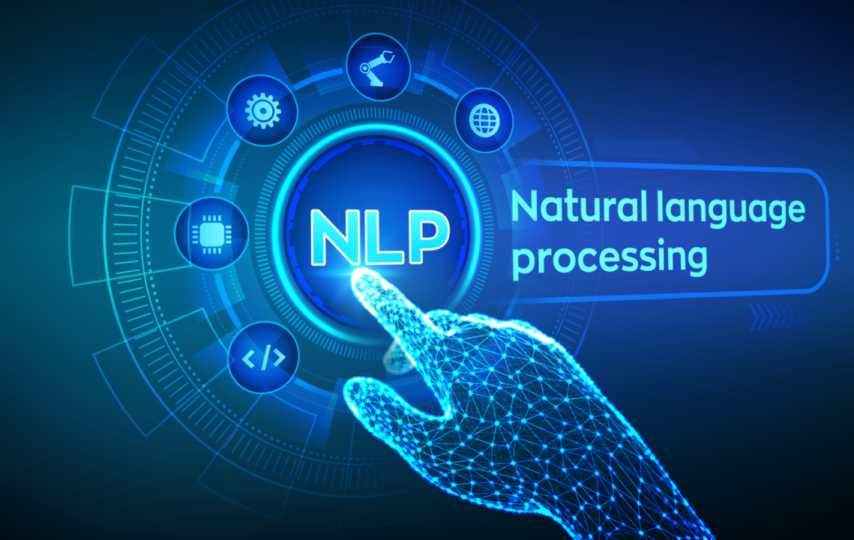Search engine optimization looks to improve website content
and structure to get higher rankings from search engines.
Natural language processing is an AI technology that
enables computers to comprehend, interpret and manage human language.
In this blog post, the purpose of natural language processing in the context of
Search Engine Optimization will be discussed. Additionally, its abilities,
how it works, as well as some of its techniques used in search engine optimization will be looked into.
With this knowledge, you can use natural language processing to
boost your website’s search engine ranking and give better results to your clients.
What Is Natural Language Processing?
Natural Language Processing is a significant subset of artificial intelligence that
aids machines in interpreting, comprehending, and processing human language.
This field is interdisciplinary, combining elements of computer science, computational linguistics, and
artificial intelligence. Natural Language Processing helps computers
process text or voice data in human language and
understand its complete meaning including the speaker or writer’s intent and emotions.
Natural language processing uses various models, including rule-based modeling, statistical models,
machine learning, and deep learning techniques to disintegrate human text and
voice data in ways that assist the computer in comprehending what it is analyzing.
Some of the critical tasks that Natural Language Processing
can do are machine translation,
speech-to-text conversion, and speedy summarization of large volumes of text including in real-time.
In summary, Natural Language Processing is
an essential aspect of AI that allows machines to understand
and process human language providing us with practical applications for everyday use.
What Is Natural Language Processing Good For?
Natural Language Processing has become an important part of today’s technology.
This blog post will explore the ways in which Natural Language Processing can
be used to benefit businesses,
from understanding the human spoken/written language and converting that interpretation into
machine-understandable language to speed up access to relevant information.
We will also discuss the benefits of using
Natural Language Processing including less costly
than employing human staff, grammar correction software, and social media monitoring
tools which are all easy to put in place.
Understanding The Human Language And Converts That Interpretation Into Machine Understandable Language.
Natural Language Processing is an essential aspect of modern technology and its applications. It involves the use of computers to understand the meaning of a human written or spoken language,
thus allowing machines to better interpret and respond to the user’s needs.
By understanding the nuances and syntax of human speech, Natural Language Processing can
parse queries, classify documents, perform sentiment analysis, generate text summaries,
identify important entities in documents, and much more. Natural Language Processing, also works as a bridge between humans and machines by
converting natural language into machine-readable formats that computers can then execute as commands.
Surprisingly, Natural Language Processing has even enabled new types of human-machine communication, such as chatbots and virtual assistants like ChatGPT and Bard. Natural Language Processing is widely used by these conversational bots to interpret user inquiries and offer relevant replies.
ChatGPT and Bard can provide tailored and contextually relevant information to users by employing powerful algorithms and machine learning approaches, making interactions with technology more natural and intuitive.
With Natural Language Processing, organizations
are able to present their data in a meaningful
way and establish a better connection with their customers.
This makes it an invaluable tool for businesses across
industries looking to gain better insights from their data.
To Speed Up The Access To Relevant Information
Natural language processing is a powerful tool for and
recognizing patterns, trends, and insights in data.
With Natural Language Processing organizations can speed up access to relevant information by
leveraging machine learning algorithms to
analyze large amounts of data in short periods of time. This can help inform decisions ranging from process automation to customer sentiment analysis.
Companies are utilizing Natural Language Processing to
drive decisions on a wide range of topics and
it is no surprise that many experts believe this
technology will become pervasive over time.
Nlp Allows Users To Write More.
Natural Language Processing is a powerful technology that helps users to write more. It enables us to process human language and interpret its meaning.
This in turn allows us to convey our thoughts, ideas or
plans with the correct spelling, syntax, and grammar.
Natural Language Processing has a wide range of applications including
text analytics, search engine optimization, automated customer service agents,
natural language understanding, information extraction, and machine translation.
With Natural Language Processing, users are able to express themselves more
without worrying about incorrect spelling and sentence structure. As such, it increases user accuracy for written communications.
Less Costly Than Employing Human Staff
Natural language processing is a growing technology
that can provide businesses with many benefits.
NLP can help to streamline data processing tasks and
extract useful information from natural language texts.
It also has the advantage over traditional methods of employing human staff as it
can be less costly in both time and money.
For businesses looking to automate certain processes or to
access large amounts of data, natural language processing is an excellent option.
Grammar Correction Software
Grammar correction software is an important tool for Natural Language Processing. It can help improve the accuracy and quality of writing by
correcting mistakes such as spelling, punctuation, and grammar errors.
This technology can be used to process large amounts of text and,
ensuring that documents are written in a consistent manner.
Additionally, it can be used to transform natural language into
a more formalized structure for easier understanding by
machines.
Grammar correction software is essential for effective Natural Language Processing,
enabling faster and more accurate operations on large data sets.
Social Media Monitoring Tools
Social media monitoring tools are a great application of natural language processing. They allow businesses to track and
analyze conversations happening on various social media platforms,
making it easier to discover customer sentiment and stay on top of industry trends.
With the right tool, brands can stay plugged
into the latest conversations across many channels
which helps them create better strategies and make more informed decisions
when it comes to marketing, product development, customer service, and more.
Natural language processing has been instrumental in revolutionizing the way
businesses interact with their customers online.
Easy To Put in place
Natural Language Processing has the potential
to be a powerful tool for businesses and professionals.
It can simplify text processing, categorize documents more
and provide insights into a customer’s sentiment.
Natural Language Processing is easy to put in place — companies don’t need to
make drastic changes to their existing systems or
hire extra staff to take advantage of it. All they need is access to a reliable Natural Language Processing solution and
the data necessary for implementation. With the right amount of time and effort invested, NLP can become an integral part of
an organization’s workflow in no time at all.
How Does Natural Language Processing Work?
Natural language processing is a branch of Artificial Intelligence that enables computers to
understand and interpret human language.
Natural language processing relies on deep Learning and algorithms to
interpret and understand human languages, as well as predict a human’s intention.
It is used in applications such as translation, voice recognition,
and summarizing large volumes of text.
Natural Language Processing works by breaking down human language into fragments
so that the grammatical structure of sentences and
the meaning of words can be analyzed and understood in context. This helps computers read and understand spoken or written text in the same way as humans.
Natural Language Processing tasks include
tokenization, part-of-speech tagging, parsing, sentiment analysis, entity extraction, and more.
These tasks help the computer make sense of what
it is ingesting by breaking down the language into words and
deriving context from the relationship between them.
Natural Language Processing is a subfield of Artificial Intelligence that is used to
interpret human language into a format that machines can understand.
It does this by analyzing the input data and breaking it down into parts,
then applying techniques such as text analysis and
sentiment analysis to extract meaning from it.
Natural Language Processing systems have become powerful over time and learning to
account for not literal meaning but also context, slang, sarcasm, and more.
This is beneficial for search engine optimization since
understanding user intent allows us to better target our content towards search queries.
Additionally, Natural Language Processing helps with refining keyword recommendations so that
they reflect actual user searches rather than
outdated assumptions about what users are searching for.
Natural Language Processing Techniques
Natural language processing techniques have become indispensable for effective search engine optimization.
NLP is able to extract, analyze and format large amounts of unstructured text data,
giving marketers insights into customer behavior and
trends necessary to inform their search engine optimization strategies.
Through everything from keyword analysis and
sentiment analysis to topic modeling and content recommendations,
Natural Language Processing is providing vital intelligence that
is key in ensuring a successful search engine optimization campaign.
Its ability to help marketers focus on key topics as well as target the right audiences makes it
an invaluable tool for improving search engine optimization across the web.
Conclusion
In conclusion, Natural Language Processing is a powerful tool
that can be use to optimize search engine optimization.
By leveraging its ability to track user queries and
generate targeted keywords it can
help websites rank higher on search engine results pages.
Additionally, Natural language processing can help content creators create better-targeted web pages that
are more likely to attract organic traffic from users searching with related keywords.








